Table of contents
Polycystic ovarian syndrome (PCOS) is a common endocrine disorder that affects about 18% of women of reproductive age. It can lead to various secondary conditions, one of which is cardiovascular disease.
Women can fall prey to PCOS heart disease in their 30s and 40s – according to a study published in the European Journal of Preventive Cardiology. Just because it is scary, doesn’t mean it is invincible! There are proven ways to keep the risk at bay – one of which is inositol [more on it later].
PCOS and Heart Disease – What Every Woman Needs to Know!
Some of the complications that PCOS can lead to include:
- Missed period
- Lack of ovulation
- Hirsutism
- Metabolic syndrome
- PCOS cardiovascular disease (CVD)
Women diagnosed with PCOS are mainly worried about missed periods and infertility, but physicians need to create awareness about the risk of PCOS heart disease and preventive measures.
It is true that PCOS is more than a reproductive disorder. If not handled well, it can affect different body systems. Think of PCOS as diabetes; if not managed well, it soon opens the floodgates of diseases, including metabolic syndrome.
In simple words, a metabolic syndrome is the assortment of several biochemical functions gone awry that increases your risk of ovarian cyst heart palpitations, and PCOS heart attack.
PCOS, Metabolic Syndrome & CVD – What’s the Connection?
Can PCOS Cause Heart Palpitations?
Several studies have underlined the connection between PCOS, metabolic syndrome, palpitations, and CVDs.
The hormonal imbalance, particularly that of insulin and androgen, disturbs several functions in the body, including lipid/glucose metabolism and blood pressure. The result is a state of overall:
- Inflammation in the body
- Obesity
- Insulin resistance, impaired glucose tolerance and diabetes
- Hypertension
- Palpitations
- Blood vessel injuries
What Dr. Clare & Team Found!
A new study conducted at the University of Cambridge (2020) evaluated the risk of CVDs in PCOS women. Researchers studied the medical records of over 60,000 women undergoing assisted reproductive therapy (ART) to get pregnant. Of these, over 6000 women had PCOS. All women were followed-up for nine years. During this period, 4.8% (2925) women developed CVDs, of which 19% had PCOS.
Study Results
The study found out that the risk of heart disease was higher in women of reproductive age, i.e., women in their 30s and 40s. The risk diminished with age as women aged 50 or above showed no or reduced risk of CVD.
Researchers noticed that the risk was directly related to weight and blood pressure, i.e., the more obese you are, the more likely you are to have diabetes and hypertension, and heart disease.
Dr Clare Oliver Williams, the lead author, encourages young women to be aware of their condition and take charge of it right from the outset. In a European Society of Cardiology press release, she says:
Heart health appears to be a particular problem for young women with PCOS. This may be because they are more likely to be overweight and have high blood pressure and diabetes than their peers.
Remember, there is Hope. PCOS is not a Life Sentence!
The diagnosis, symptoms and fertility prospects can be distressing, but not something that cannot be defeated. Folks, remember, knowledge is power! Learn about your disease every day and manage it well by making tiny changes in your lifestyle. Just don’t let the minor changes add up and lead to the bigger PCOS heart problems. Be positive, eat fruits and vegetables and stay physically active to balance hormones naturally. More importantly, consider taking inositol to reduce the risk of PCOS cardiovascular disease.
Inositol – How it Helps Diminish the Risk of PCOS Heart Attack
There is sufficient evidence to prove that myo-inositol and D-chiro-inositol decrease the risk of CVD in women by improving:
- Insulin resistance
- Androgen excess
- Ovulation
In a study, researchers recruited 20 obese women and treated them with a combination therapy of myo- and D-chiro inositol. The women had impaired lipid profiles with high LDL, triglycerides and cholesterol levels. A poor lipid profile is an indicator of potential heart disease in the future. After six months of therapy, the lipid profile was tested again and there was marked improvement from the baseline levels.
What is Inositol?
Inositol is a sugar-alcohol that is found in both your body as well as many foods such as meat, corn, cereals, fruits and legumes. It has 9 forms (isomers) but the most popular are:
- Myo-inositol
- D-chiro-inositol
Inositol is a wonderful molecule that balances many chemicals and hormones in your body and keeps it in a good shape.
- In women with metabolic syndrome, inositol reduces the risk of diabetes and heart disease by improving blood pressure, insulin resistance and lipid profile.
- For the hormonal disorder such as PCOS, inositol improves blood sugar and chances of ovulation and pregnancy. It regulates blood sugar by promoting its cellular uptake, especially in the brain, ovaries, liver, muscles and fat cells.
- Taking inositol with folic acid during pregnancy lowers the risk of pre-term birth and gestational diabetes.
It is used for:
- PCOS
- Metabolic syndrome
- Insomnia
- Bipolar disorder
- Post-traumatic stress disorder
According to clinical research, splitting the therapeutic dosage of 4g of inositol in two distinct administrations seems to be the best approach for a full-day coverage.
You are not in this alone! Elan Healthcare produces all-natural supplements helping women take back control of their bodies. Our PCOS management supplement, Ovofolic, allows women to manage their PCOS symptoms, decrease PCOS cardiovascular risks, and improve fertility.



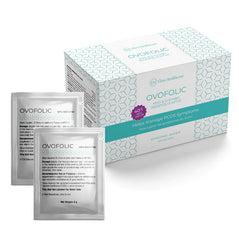

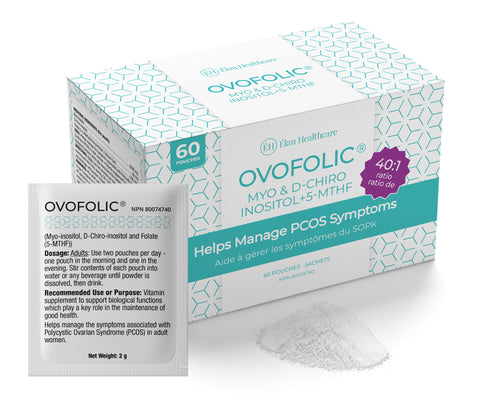
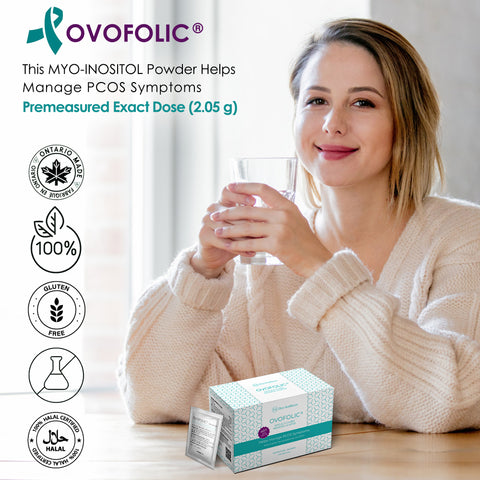
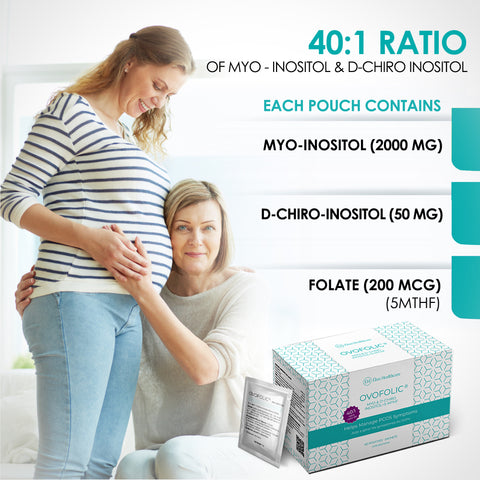
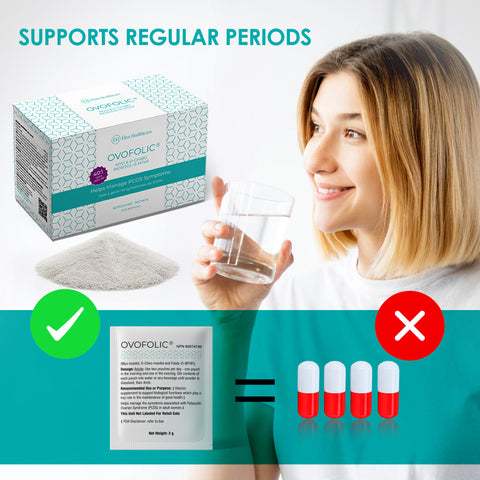
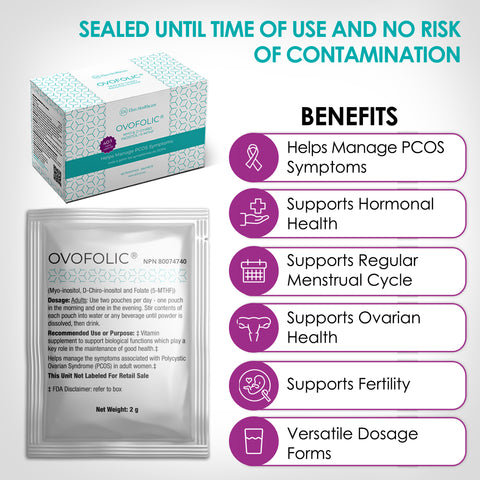
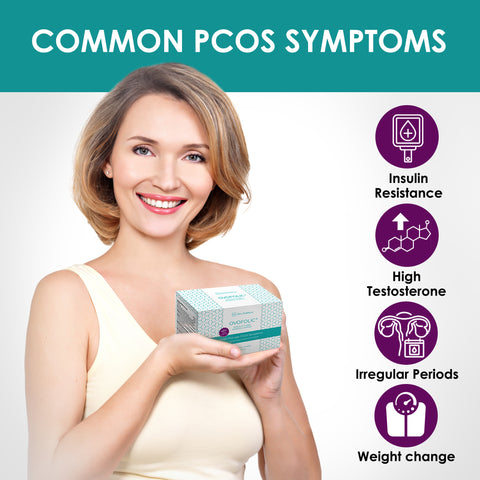
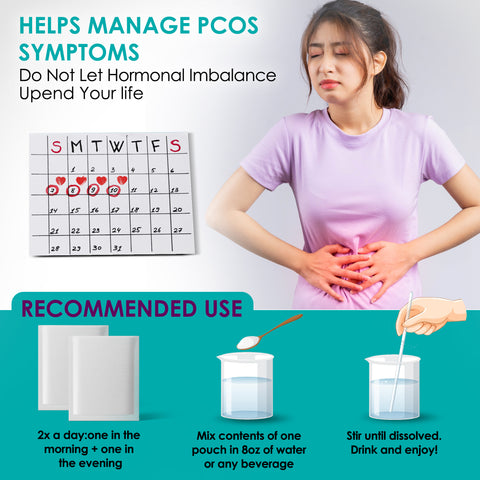
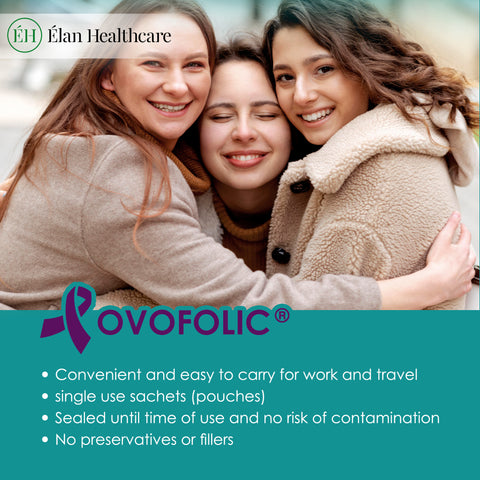
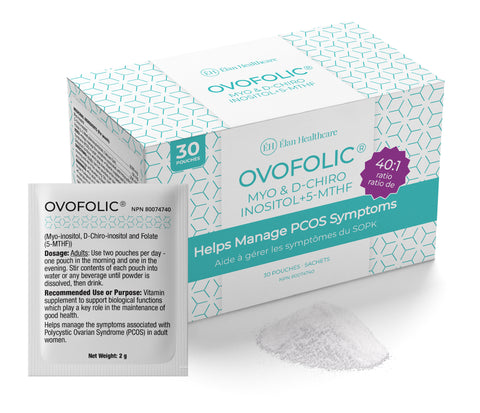
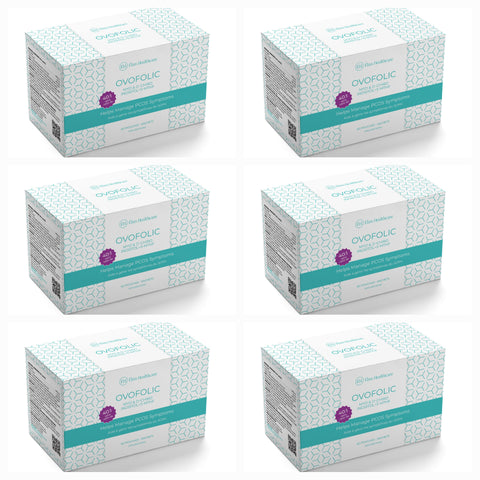
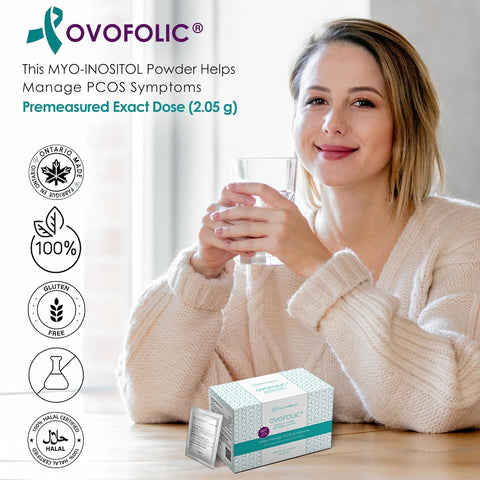
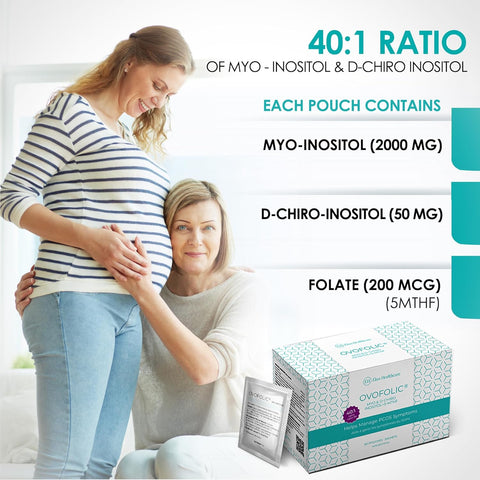
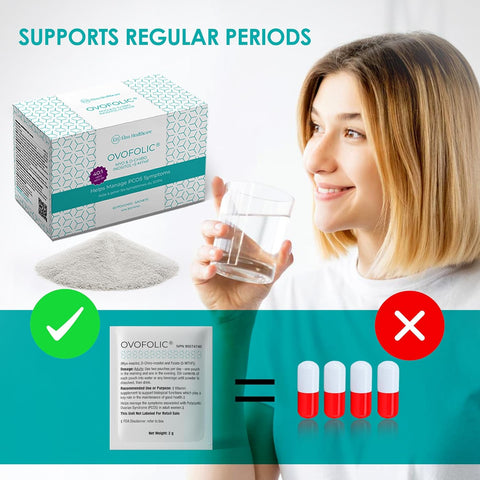
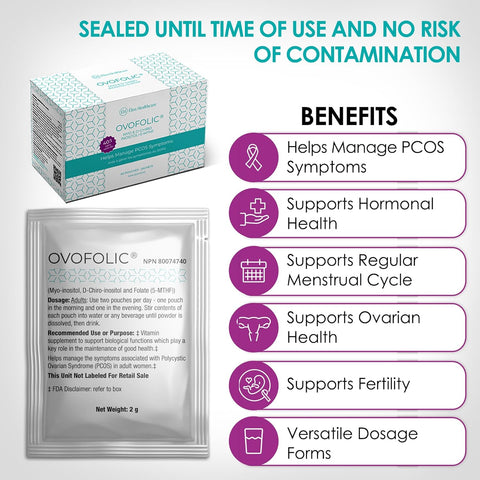
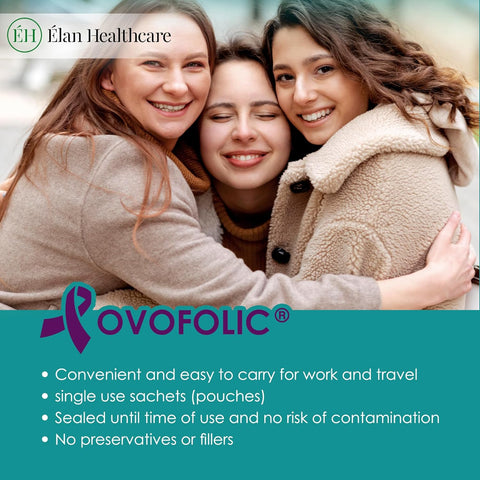
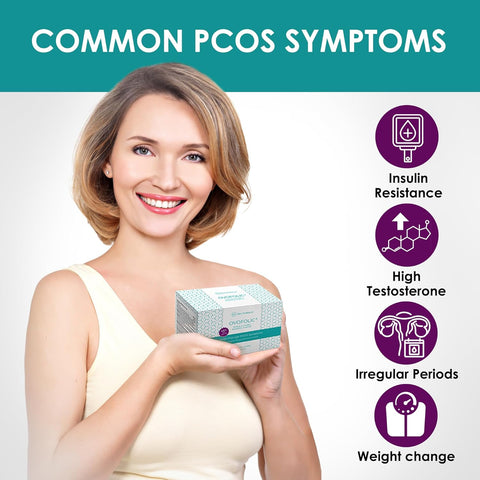
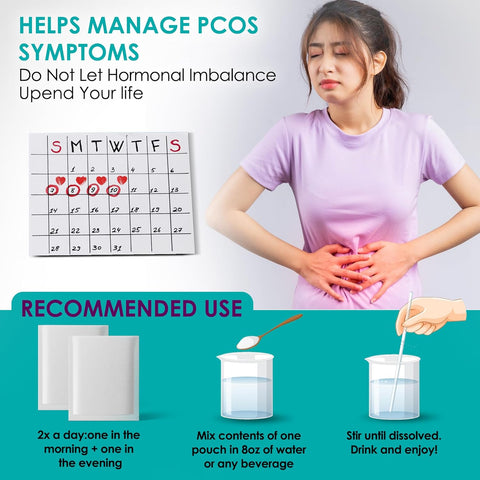
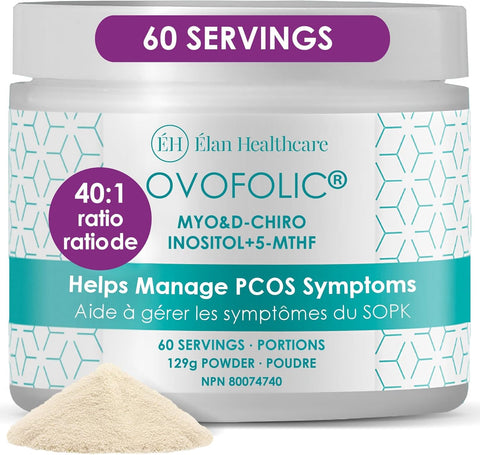
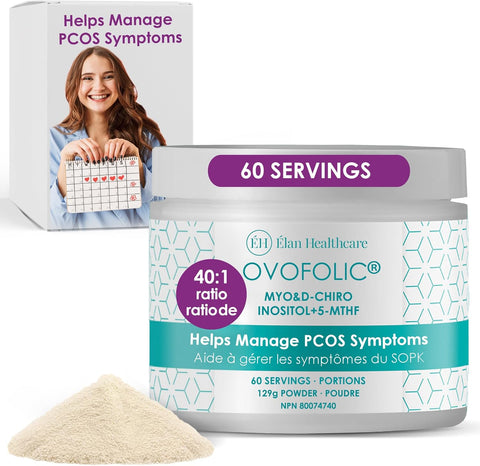
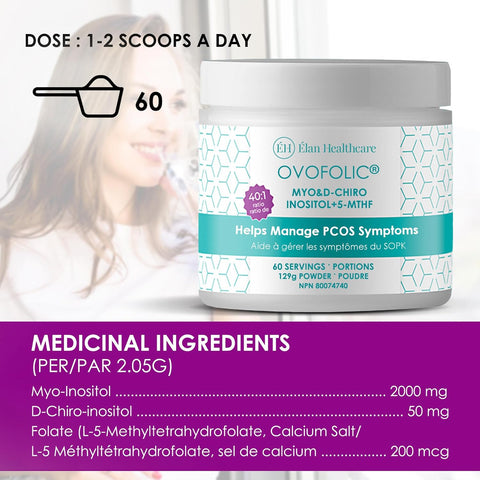

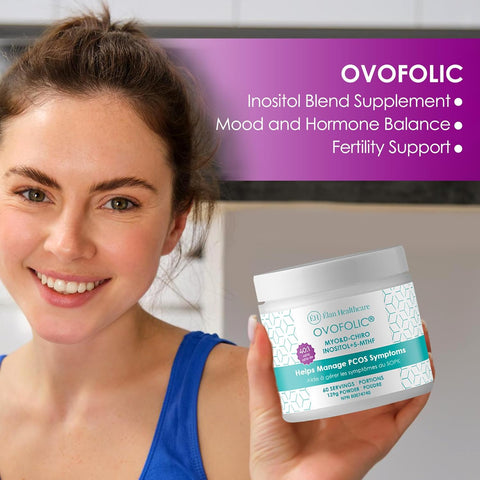
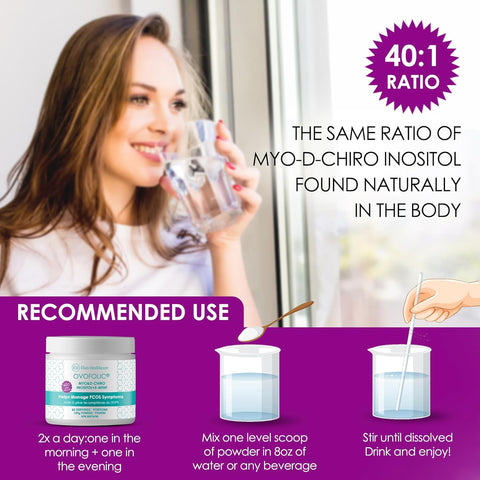
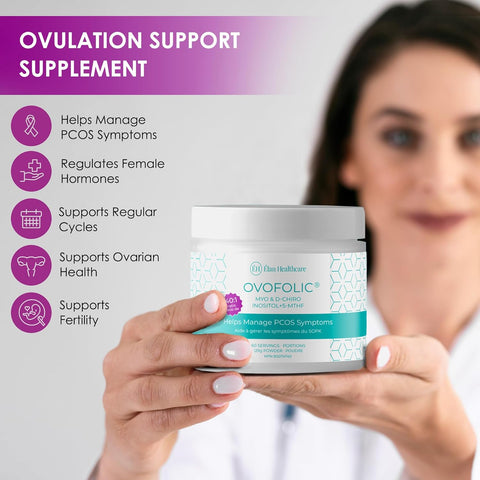
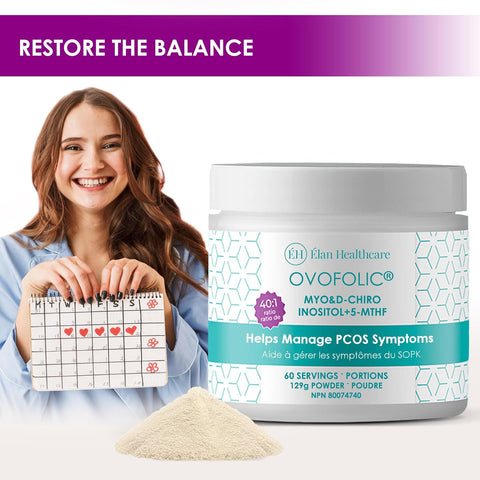


No comments yet.
There are no comments for this article. Be the first one to leave a message!
+ Open to leave a Comment